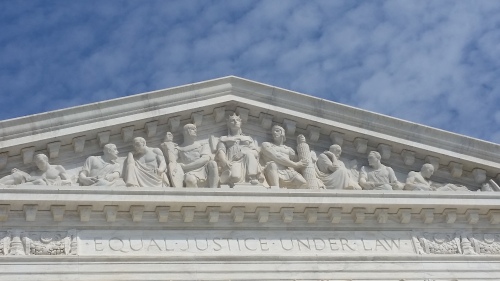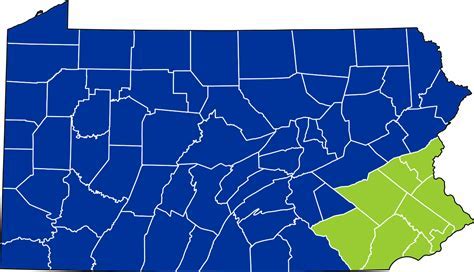
2018 is at an end. One of the most active years in judicial nominations in recent memory ended with a whimper, as a singular blockade by outgoing Sen. Jeff Flake delayed all judicial confirmations. As we look forward to the new Congress in 2019, it’s worth looking back at the previous year to see how the judicial landscape has evolved.
Nominations and Confirmations
This year, the Senate confirmed one supreme court justice, 18 appellate judges and 47 district court judges. Adding in the one supreme court, 12 appellate, and six district court judges confirmed in 2017, the 115th Congress has racked up a total of 85 Article III judicial confirmations. In comparison, President Obama saw 60 confirmations in his first Congress, President Bush saw 100, and President Clinton saw 126.
While an overall look at confirmations doesn’t look very impressive, where this Administration stands out is in appellate confirmations. So far, Trump has seen 30 appellate confirmations. In comparison, Clinton and Obama took their entire first terms to have 30 appellate judges confirmed, and President Bush took until December of his third year to reach his 30th confirmation. Plus, with another 15 appellate vacancies still pending, Trump looks likely to cross 40 or even 50 appellate confirmations before the end of his first term. Particularly impressively, only two of the current pending vacancies are still waiting on nominees, one of which opened just last month.
Failed Nominations
That being said, the Trump Administration has also seen an unusually large number of failed nominees. In the past two years, the Trump Administration has seen seven nominees withdrawn or stalled due to lack of majority support: Ninth Circuit nominee Ryan Bounds; district nominees Brett Talley, Jeff Mateer, Matthew Petersen, Thomas Farr; and Court of Federal Claims nominees Damien Schiff and Steven Schwartz (I’m not including nominees who had home state senatorial trouble such as Jon Katchen or Gordon Giempietro). This is particularly remarkable because the Trump Administration was facing a Senate controlled by his own party and unencumbered by the filibuster.
Another way to look at it is that the Trump Administration essentially faced at least 2 negative votes on each of the above nominees. In comparison, throughout the entire Obama Administration, only 15 nominees drew even a single negative vote from Democrats, and only six drew 2 or more: appellate nominees Cornelia Pillard and Pamela Harris and district judges Gerald McHugh, Edward Smith, Victor Bolden, and Joseph Leeson (Smith and Leeson drew opposition from the left). The entire Bush Administration saw just six nominees draw same party opposition: Justice Sam Alito; appellate judges Roger Gregory, Priscilla Owen, and Helene White; and district judges J. Leon Holmes and Janet Neff (three of those judges were Democrats). The Clinton Administration saw just one nominee attract same party opposition: Judge Brian Stewart (a Republican named upon the insistence of Sen. Orrin Hatch). In other words, in two years, the Trump Administration has drawn at least two Republican no votes on more nominees than the Clinton and Bush Administrations combined and more than the Obama Administration drew in its entire tenure.
A Vacancy Crisis?
One of the most forgotten parts of the judicial confirmation news cycle is the sheer number of judicial vacancies currently pending. As of December 31, 2018, 144 of the 890 Article I and Article III judgeships are vacant, approximately one in six. In comparison, approximately 10% of judgeships were vacant in 2016 when the Washington Post reported on the alarming judicial vacancy rate. As such, objectively, our federal courts are overstretched.
That being said, not all judicial vacancies are created equal. The Trump Administration and the Republican Senate have focused their attention on filling vacancies on the court of appeals, frequently replacing judges who have not yet left their seats. However, the court of appeals are not where the judges are most needed. Rather, it is trial level courts that are stretched particularly thin. For example, five out of twelve judgeships on the Northern District of Texas are currently vacant with only one nominee pending. Similarly, the Central District of California currently has a quarter of its 28 judgeships open, while the Southern District of California is expecting its fifth vacancy (out of 13 judgeships) to open next year. The situation in the District of North Dakota is even more dire, with the only judge on the court scheduled to retire next year, and no nominees pending to either of the two pending vacancies.
Perhaps nowhere is the vacancy crisis more apparent than in the Court of Federal Claims. This specialized court has a limited docket and non-lifetime appointments, an ideal venue for bipartisan agreements on nominees. However, the Court currently has less than 1/3 occupancy, with only five out of sixteen judgeships filled. Much of the blame for this can go to Sen. Tom Cotton, who singlehandedly blocked five uncontroversial Obama nominees to this court during the 114th Congress. However, even since that point, the court hasn’t seen a single confirmation even as vacancies continue to pile up. Additionally, rather than choosing uncontroversial nominees, the Trump Administration has chosen lawyers with political backgrounds or little experience practicing before the specialized court, leaving little room for bipartisan agreement.
As such, despite remarkable success on the confirmation front, the Trump Administration has barely made a dent in reducing judicial vacancies as a whole.
Demographics of Confirmed Nominees
Let’s take a look at demographics of the 85 confirmed Trump appointees.
Age
I noted last year that, despite press reporting on the supposed youth of Trump nominees, they are largely similar in age to those of previous presidents. With a larger pool of nominees to look at now, that conclusion largely holds up. The average birth year of Trump’s judicial nominees is 1967, making their average age 51 years, fairly comparable to the average birth years of the previous few presidents. Additionally, Trump’s appellate judges, also alleged to be significantly younger than those of previous presidents, come out to an average age of 50, hardly unusual.
The oldest Trump appointee tapped for the federal bench is Judge Mark Bennett, who was nominated and confirmed to the 9th Circuit at age 65. The youngest is Judge Holly Lou Teeter on the U.S. District Court for the District of Kansas, who is just 39 years old.
Race
As noted earlier, the vast majority of Trump’s appointees are white. Only seven of the 85 judges confirmed this Congress were non-white: five Asian; one Hispanic; and one African American judge respectively.
Gender
This blog has previously criticized the gender diversity (or lack thereof) of Trump appointees. Unfortunately, the situation has not improved. Only 20 of the 85 confirmed judges are female. The numbers are even worse among appellate nominees, where only 6 out of 30 judges are female. Both numbers are lower than those seen in the last three presidents.
What is particularly alarming is that the gender ratio on the federal judiciary, which significantly narrowed under President Obama, is now backsliding. Over the last two years, 29 female federal judges have left active status, meaning that there are now nine fewer female judges on the federal bench than there were when Trump took office.
Looking Ahead
When the Senate recessed, it left 73 judicial nominees unconfirmed. Most, if not all, of these nominees will be renominated in January, giving the Senate a significant number of nominees to work through. As such, many of the nomination fights that were deferred from this year will take place next year, this time, with Republicans having a slightly wider majority on judge votes. As such, it is likely that many controversial picks who were not confirmed this year will be approved next year, including Matthew Kacsmaryk and Howard Nielson.
However, with incoming Senate Judiciary Committee Chairman Lindsay Graham announcing his intent to continue the blue slip policy of his predecessor, the White House cannot push through its picks for district court vacancies. As such, achieving a meaningful reduction in the number of judicial vacancies will require cooperation between the White House and senators of both parties to select judges everyone can get behind. We can only hope that such cooperation occurs and produces mainstream judges committed to the rule of law.




